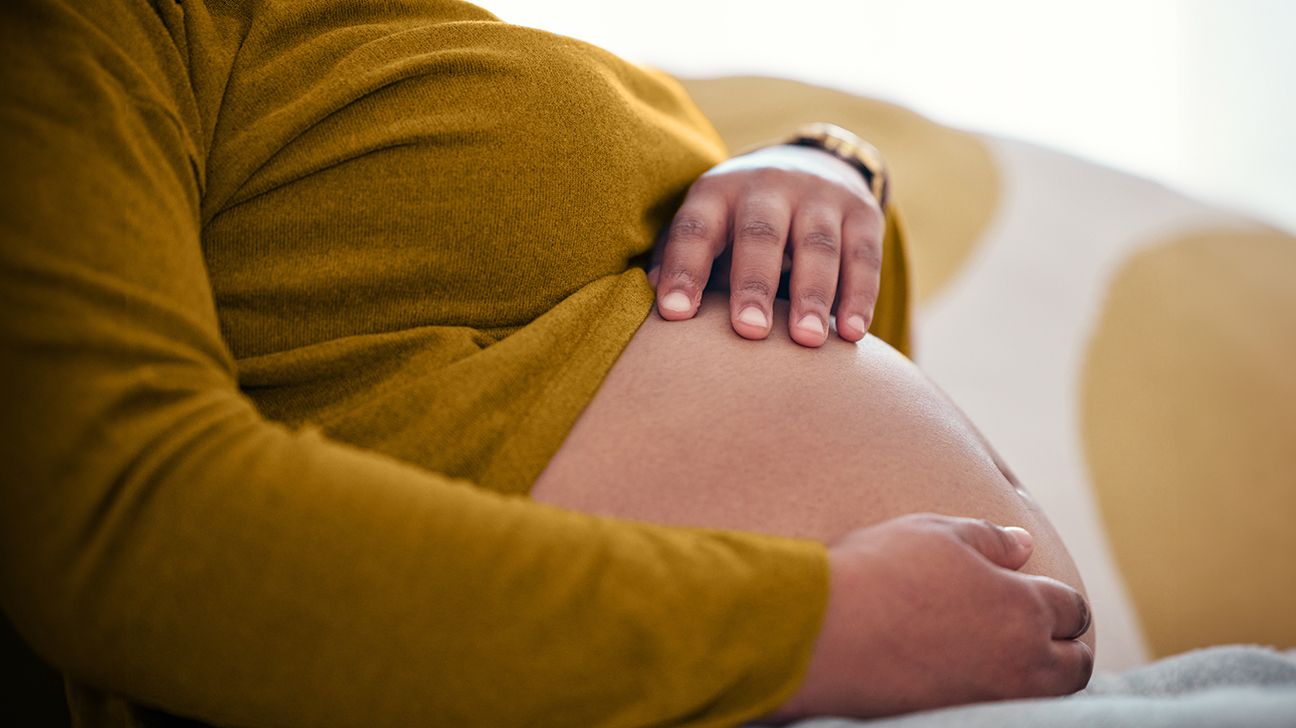Cystic fibrosis is an inherited illness that can be screened for during pregnancy. The test determines whether you have any altered genes that you can pass on to your child. Having the information can help determine your next steps.

Cystic fibrosis (CF) is a genetic condition caused by genetic mutations or changes. You must inherit a copy of the altered genes from both biological parents to have the illness. If you have only one copy of the genetic mutations – from one parent, you do not have CF or any symptoms, but you are a carrier.
You can choose to have CF screening during pregnancy. Screening helps you know your chances of having a baby with CF. Additional testing is offered if you are a carrier for the gene mutation that causes CF.
CF is a serious lifelong illness. There is no cure, but there are treatment options.
Mothers are offered genetic testing or screening for cystic fibrosis during the first trimester of pregnancy. This testing is called carrier testing. The test determines whether you have a mutated gene for CF.
If the biological father has a family history of CF, he may test first. It’s also an option for both parents to test simultaneously.
You need to be screened only once in your life. Your status for CF will always remain the same.
Cystic fibrosis screening on adults is often performed through a blood test, but it may be performed on cells scraped from your inside your cheek, called a buccal swab or smear.
If the test is part of your prenatal testing, it may be done on amniotic fluid from an amniocentesis or chorionic villi sample (CVS).
There isn’t any preparation needed for the cystic fibrosis screening test. You can eat and drink as usual. The test can be done any time of day.
The results of cystic fibrosis testing during pregnancy mean different things depending on whether you are doing carrier testing, fetal testing, or testing the mother for having CF.
Carrier testing
The standard test to check for carrier status for CF looks for
If you are a carrier, the biological father can be screened. If both parents are carriers, your risks are:
Fetal results
If you find out that you and the father are both carriers for CF, your healthcare team will offer amniocentesis or chorionic villus sampling (CVS) to see whether your baby has CF.
Your fetus is a CF carrier if there is one CF gene mutation. Your fetus has CF if there are two gene mutations. Testing cannot predict how severe the symptoms will be for your baby.
Maternal testing
On rare occasions, an expecting mother may show symptoms of cystic fibrosis. If this happens, you will receive testing and an evaluation. It is considered adult-onset cystic fibrosis if you are diagnosed with CF after age 18.
At this time, you can’t treat or change the genetic mutation. Scientists are studying whether the mutation can be corrected through gene editing.
If your fetus has CF, you can choose to continue your pregnancy and prepare for having a baby with CF. You can use the time to meet with specialists and learn about the disease and treatment options.
Some parents elect to end their pregnancy. Every state has different laws on terminating a pregnancy. Your healthcare team can help answer your questions.
Since CF is caused by several genetic mutations, the leading risk factor for CF is having a family member with CF.
According to the National Institutes of Health, CF is most common among white people. CF affects approximately 1 in 17,000 Black Americans and 1 in 31,000 people of Asian descent in the United States.
Many advancements have been made in screening, diagnosing, and treating cystic fibrosis in the past few decades.
Baby is positive
If your fetus has cystic fibrosis, they will need specialized care after birth. A team of healthcare experts will work with you to develop the best plan for your baby. People with CF now live much longer and have improved health. Many people with CF attend college, have careers, and even have children.
Parent is carrier
You will not have any symptoms when you test positive as a carrier. This gene can get passed on to your baby. As long as one biological parent does not have CF and is not a carrier, your baby cannot have CF but has a 25% chance of being a carrier.
Does the CF carrier testing detect any other genetic diseases?
No, the screening test screens only for genetic mutations related to CF. Other blood tests can screen for additional genetic diseases.
Will my baby be screened for CF when they are born?
Yes, your baby will have screening for CF. All babies born in the United States receive a newborn screening blood test that screens for various disorders, including CF.
The CF screening test only screens for the most common mutations. How many mutations of CF exist?
Cystic fibrosis carrier screening determines whether you carry a mutated gene for CF. When both biological parents carry the gene, your baby has a 25% chance of having CF.
Prenatal diagnostic tests are available to determine whether your fetus is a carrier for CF or has the disease. Having the information about your carrier status and that of your baby can help you be empowered to make informed decisions about your pregnancy.
